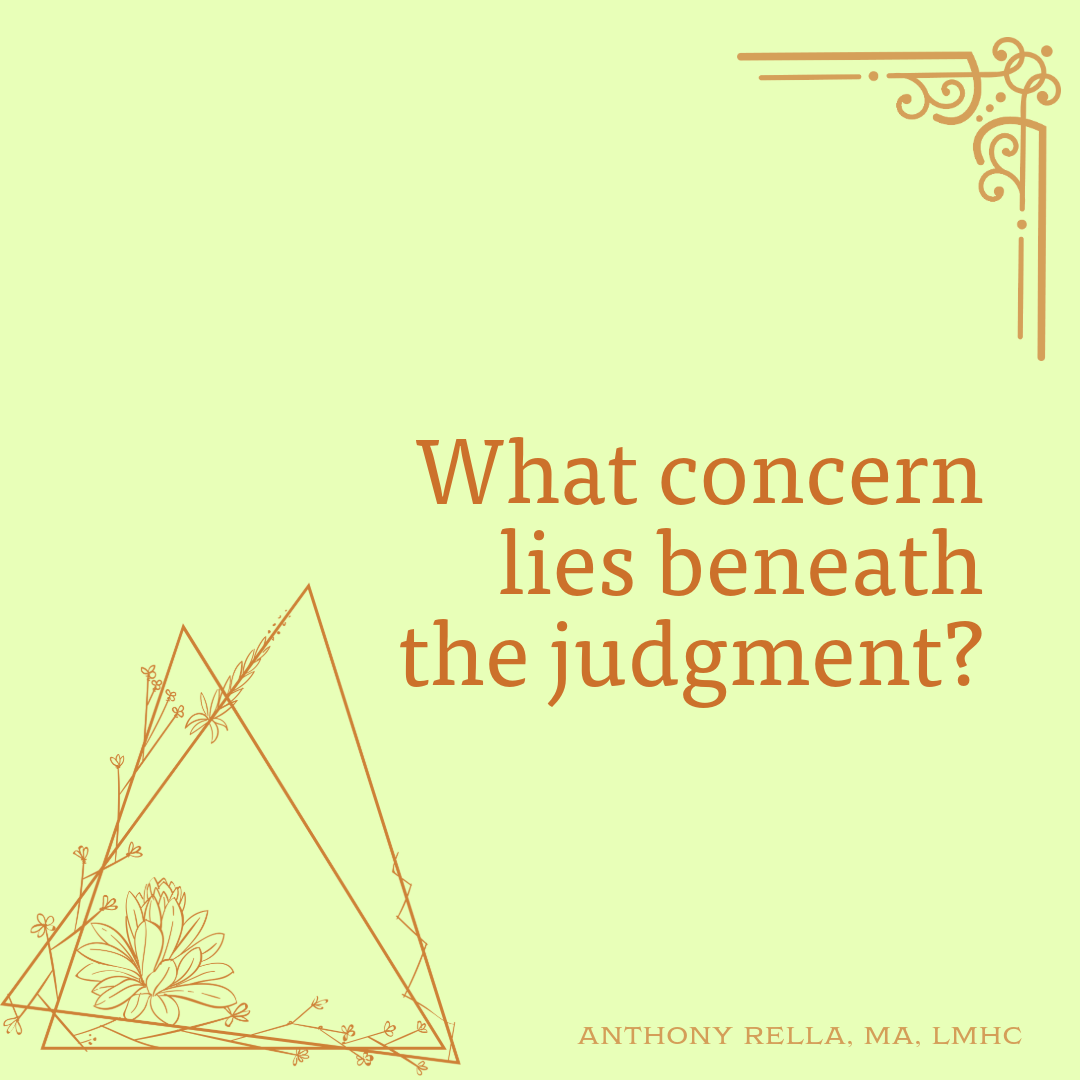There is a quality of judgment that is simply necessary in separating out what is good for us from what is not, and bad for us might be good for someone else, so we do not need to judge for another. And there is a quality of judgment that really wants to judge for someone else, often with a measure of contempt, and that tends to be what we dislike the most.
“Judge for someone else” could mean that I am judging myself based on what I think someone else might think of me, or it could mean that I am judging someone else based on what I think they should be doing instead. Wherever it’s aimed, it’s usually unpleasant, conflict-inducing, and unwanted. And sometimes there is a wisdom that gets lost in the unpleasantness.
When I notice judgment in myself, if I have the time and energy, I ask the part of me that’s judging, “What are you concerned about?” This isn’t a trick question, it’s a genuine asking, and a willingness to acknowledge any answer. Turning away from the judgment toward the concern makes things softer. It invites the care that is beneath the harshness to come up, and it lets my judging parts express what’s really bothering it.
When the care comes up and the concern is clear, so much moves more easily. Perhaps once I’ve named it I realize it’s not that big a deal and move on with life. Or I can address the concern for myself and the judging part learns it can express itself with the harshness. Or I can decide if the other person would benefit from hearing my concern—best of all, I could ask them if they want to hear it.


